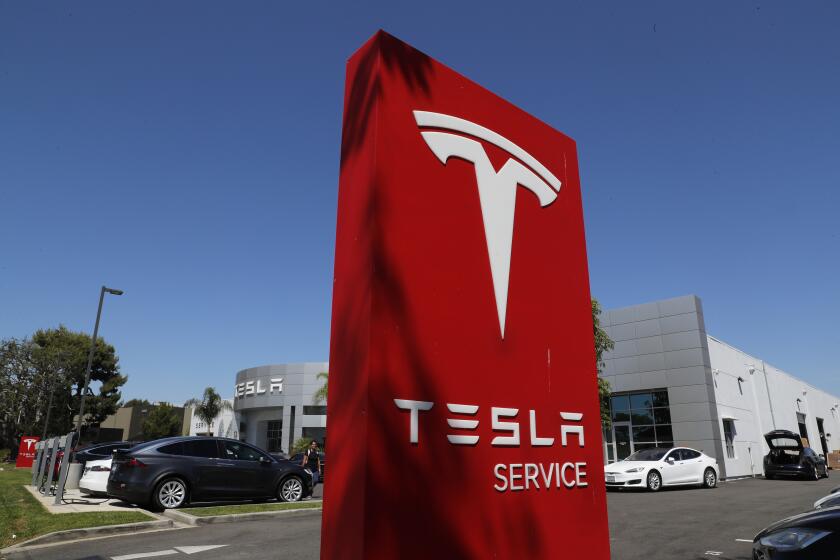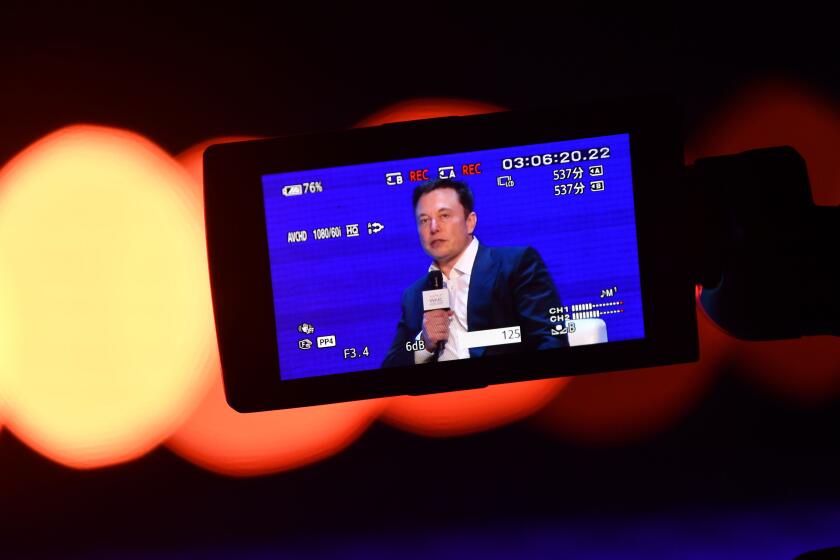U.S. opens investigation into Tesla seat belts coming loose

- Share via
U.S. highway safety regulators have opened yet another investigation into problems with Teslas, this time tied to complaints that the seat belts may not hold people in a crash.
The investigation by the National Highway Traffic Safety Administration covers an estimated 50,000 Model X SUVs from the 2022 and 2023 model years.
The agency says it has two complaints from Tesla owners that the front seat belts weren’t sufficiently connected at the factory.
Documents posted by the agency Tuesday say the belt linkage and pretensioners, which tighten the belts before a crash, are anchored to the seat frames.
Both complaints allege the linkage and pretensioner separated from the frames when the vehicles were driving and force was exerted. Neither incident involved a crash.
Tesla’s Full Self-Driving mode software may increase the risk of crashes, NHTSA says, and the carmaker is recalling 362,758 vehicles.
The agency says it’s opening the probe to look into Tesla’s manufacturing processes, how often the problem happens and how widespread it is. Investigations can lead to recalls.
A message was left early Tuesday seeking comment from Tesla.
NHTSA also is investigating complaints about problems with Teslas that date to 2020. The probes include Teslas with partially automated driving systems that can brake for no reason or can run into emergency vehicles parked on highways.
There also are investigations into complaints that some steering wheels can suddenly disconnect and that suspension parts can fail.
In a class-action lawsuit, customers say they were duped by Tesla’s $15,000 Full Self-Driving feature. Company lawyers say failure isn’t fraud.
More to Read
Inside the business of entertainment
The Wide Shot brings you news, analysis and insights on everything from streaming wars to production — and what it all means for the future.
You may occasionally receive promotional content from the Los Angeles Times.












